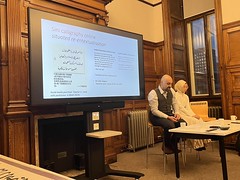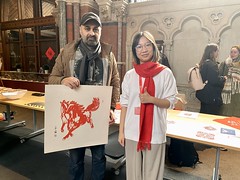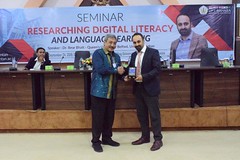I am pleased to have published a new paper, to appear in a Special Issue of Teaching in Higher Education. The Special Issue is entitled Experts, knowledge and criticality in the age of ‘alternative facts’: re-examining the contribution of higher education and will be available on the journal’s website in February 2019.
The paper, co-written with Dr Alison MacKenzie, draws from recent research that I carried out on the digital literacy practices of undergraduate students in Northern Ireland. During the project pilot study I began to notice how the students accord different levels of epistemic trust to different ‘actors’ in their practices of digital literacy. This was one of a number of aspects that I then further explored in the main research project, using the ‘epistemology of ignorance’ as a basis.
Ignorance needs careful examination. Some kinds of ignorance are mere oversights, other kinds are strategic. We have limited time and resources so it is rational to grant credibility to epistemic authorities. In this way ignorance plays a role in our knowledge practices. It is linked to our conceptions and production of knowledge.
Ignorance can also be actively produced (for discrimination, exploitation, or to maintain power). Those in the centre sometimes don’t want those on the margins to ‘know’.
We also pervasively rely on others’ testimony. We judge what to believe on whom to believe and to make these judgments, we need criteria of trustworthiness and consensus that are easy to apply. Reputation helps, but how we grant this kind of epistemic authority in digital environments, how people develop their own criteria based on plausibility, relevance, coherence, consistency, and credibility, needs to be better understood.
In a way this is a different kind of take on the ‘fake news’ discussion. Rather than looking at the news or information on its own, one of the things I do (through a ‘social practice’ approach to literacy) is to examine how belief formations which inform epistemic judgements are being developed by individuals in digital environments.
A pre-print of the author version of the paper is available from the following link: https://www.researchgate.net/publication/328702887_Just_Google_it_Digital_literacy_and_the_epistemology_of_ignorance
Permanent link: https://doi.org/10.1080/13562517.2018.1547276
I hope it’s useful for you.

Gua Charas (Pehang)
Categories: Digital Literacies, Publications, Research, writing











Great piece Ibrar.
I’ve been trying to unpack this a bit over the last year or so. I think there’s a number of lenses…and I think this piece does a good job in connecting them.
First, I think we’re in the middle of a full scale informational war online. I think we have groups that are actively flooding the space to confuse, obfuscate, and generally overwhelm the user. By giving us too much info…and info that contains a number of shades of “truth” and people generally shut down. They go back to their corners and tribes…and ignore everything else…overwhelmed.
Second, I think there is an essence of ignorance involved here as well. I think we see groups that equate/conflate experience with truth. As an example, when confronted with a topic like climate change, vaccinations, etc., you can state facts, but then some people will suggest “but my friend had this happen to them”…and they immediately disregard all points, facts, etc. This lack of a desire to inform yourself, I believe is a willful form of ignorance. I’m not sure how/if this connects to what I suggested in the first point.
Third, I think there is also a related area of “aggressively poor reading comprehension.” I think this is equal bits of trolling, ignorance, hiding with your tribes, “whataboutism”, and drilling down on parts of what they read. In short, I think it’s a part of intentionally interrupting the reading comprehension and using that as a measure to attack or defend their points. I think we see parts of this in individuals that skim/scan, or read at tweets length…and don’t dig in deeper.
As a side note…I’m wondering how my/our earlier work in online reading comprehension informs this lack of reading comprehension.
Thanks for the piece…and giving me time to think. 🙂
Hi Ian and thank you for your insightful feedback. I agree with you, and in the paper what we mention briefly as ‘invested ignorance’, as a form of strategic ignorance, relates to what you say.
In terms on informational wars, people get defensive but equally don’t know where specifically they are being ‘attacked’. Informational abundance is making people fall back on what they might perceive as stable realities upon which to place epistemic trust. What we tried to do here is to examine this in an educational context initially, where epistemic authorities are often considered (erroneously) as stable. How this is played out in the wild and feral world of social online practice is much messier.